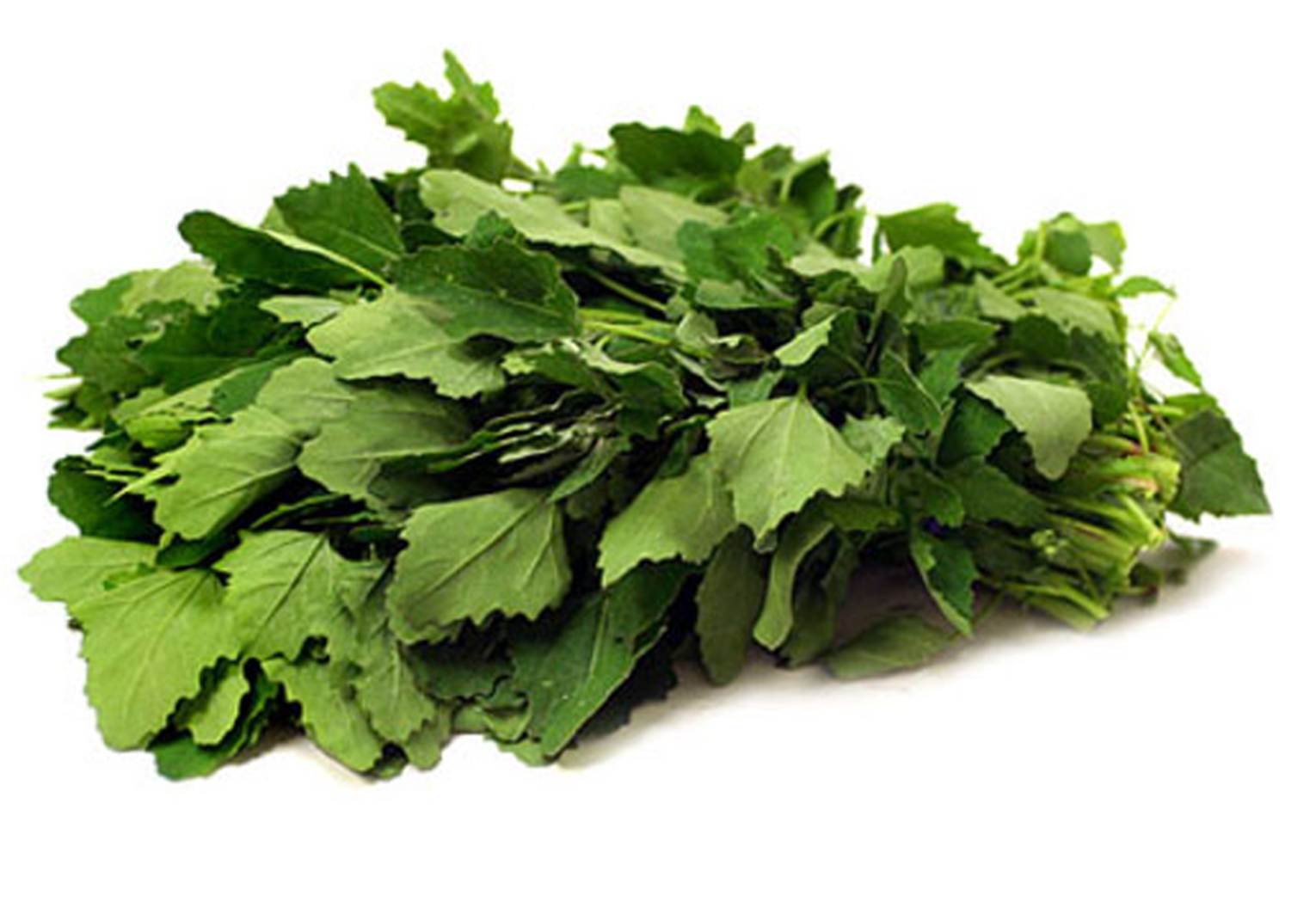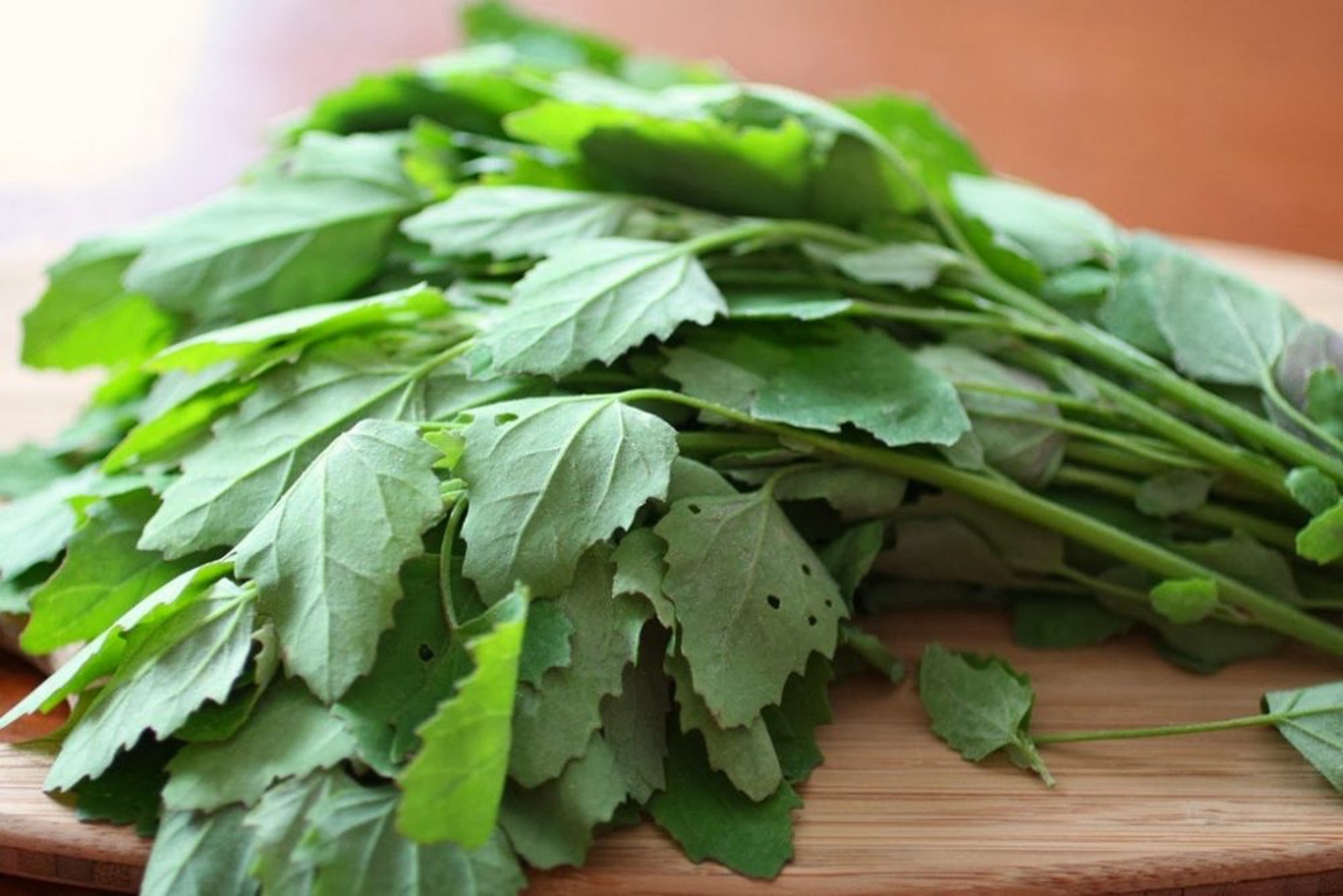Bathua/Cheel Bhaji
- Product Weight: 454 g
- Category: Fresh Fruits & Vegetables, Grocery & Gourmet Foods, Vegetables

Bathua Bhaji | Cheel Bhaji
Winter is here and there are a number of green vegetables that have started hitting farmer's markets and grocery stores. It's important to eat green vegetables during the winters, in order to protect your body from cold and flu. Winter greens are an essential for a healthy diet and there are a number of options for you to experiment with. Apart from the well-known methi (fenugreek), palak (spinach) and sarso (mustard greens), there's another lesser known winter green that we all should be including in our diets this winter. Bathua or Chenopodium album is a nutritious vegetable that is available during winters. It is grown and consumed in Northern India and is commonly also known as pigweed. Bathua greens or leaves are commonly cooked with other vegetables and consumed along with flat breads. Sometimes even cooked bathua shoots are consumed as food.
Benefits Of Bathua
Bathua leaves appear similar to that of spinach and may be cooked in a similar fashion. Whole bathua leaves may be steamed and consumed or cooked like palak subzi. It can also be included in curries. Here are some health benefits of consuming bathua:
1. Rich in Amino Acids: Bathua leaves are consumed for their high concentration of amino acids, which are important for cell formation and cell repair.
Also Read: Winter Greens: How to Buy, Store and Cook With a Variety of Saag This Season
2. Rich in Fibre: Bathua is a winter green which may be consumed if one is suffering from digestive troubles as it is rich in fibre.
3. Low in Calories: Like all other green vegetables, bathua is very low in calories and may be consumed if one is watching their weight. Bathua has just 43 calories in a 100 gm portion, as per USDA data.
4. Rich in Micronutrients: Bathua is rich in calcium, potassium, magnesium, and vitamins A, C and B6. All these micronutrients make bathua incredibly nutritious and a winter diet essential.
Bathua Bhaji | Cheel Bhaji
Winter is here and there are a number of green vegetables that have started hitting farmer's markets and grocery stores. It's important to eat green vegetables during the winters, in order to protect your body from cold and flu. Winter greens are an essential for a healthy diet and there are a number of options for you to experiment with. Apart from the well-known methi (fenugreek), palak (spinach) and sarso (mustard greens), there's another lesser known winter green that we all should be including in our diets this winter. Bathua or Chenopodium album is a nutritious vegetable that is available during winters. It is grown and consumed in Northern India and is commonly also known as pigweed. Bathua greens or leaves are commonly cooked with other vegetables and consumed along with flat breads. Sometimes even cooked bathua shoots are consumed as food.
Benefits Of Bathua
Bathua leaves appear similar to that of spinach and may be cooked in a similar fashion. Whole bathua leaves may be steamed and consumed or cooked like palak subzi. It can also be included in curries. Here are some health benefits of consuming bathua:
1. Rich in Amino Acids: Bathua leaves are consumed for their high concentration of amino acids, which are important for cell formation and cell repair.
Also Read: Winter Greens: How to Buy, Store and Cook With a Variety of Saag This Season
2. Rich in Fibre: Bathua is a winter green which may be consumed if one is suffering from digestive troubles as it is rich in fibre.
3. Low in Calories: Like all other green vegetables, bathua is very low in calories and may be consumed if one is watching their weight. Bathua has just 43 calories in a 100 gm portion, as per USDA data.
4. Rich in Micronutrients: Bathua is rich in calcium, potassium, magnesium, and vitamins A, C and B6. All these micronutrients make bathua incredibly nutritious and a winter diet essential.
































